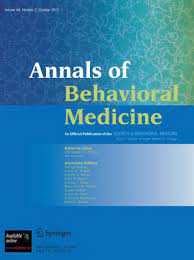 Although influenza vaccination can prevent influenza-related deaths, uptake remains low, particularly in disadvantaged populations. In this study, a theoretical model of psychological pathways to vaccination accounting for the direct and moderating role of socio-structural factors was tested. The study sought to understand the joint contributions of psychological (i.e., knowledge, attitudes, and intention) and socio-structural factors (i.e., income, education, and insurance) to influenza vaccination, prospectively. Findings revealed strong positive associations between knowledge and attitudes, attitudes and intentions, as well as intentions and subsequent vaccination. Importantly, health insurance moderated the associations between attitudes and intentions and between intentions and vaccination, such that those without insurance had weaker associations between attitudes and intentions and between intentions and vaccination. In addition, education moderated the path from knowledge to attitude and from intentions to vaccination, such that people with lower educational attainment had weaker associations between knowledge and attitudes and between intentions and vaccination. Thus, socio-structural factors act as barriers to the influence of knowledge on attitudes, attitudes on intentions, and intentions on behavior. Future research needs to be mindful of the specific paths disrupted by social disadvantages and examine ways to intervene to decrease those effects.
Although influenza vaccination can prevent influenza-related deaths, uptake remains low, particularly in disadvantaged populations. In this study, a theoretical model of psychological pathways to vaccination accounting for the direct and moderating role of socio-structural factors was tested. The study sought to understand the joint contributions of psychological (i.e., knowledge, attitudes, and intention) and socio-structural factors (i.e., income, education, and insurance) to influenza vaccination, prospectively. Findings revealed strong positive associations between knowledge and attitudes, attitudes and intentions, as well as intentions and subsequent vaccination. Importantly, health insurance moderated the associations between attitudes and intentions and between intentions and vaccination, such that those without insurance had weaker associations between attitudes and intentions and between intentions and vaccination. In addition, education moderated the path from knowledge to attitude and from intentions to vaccination, such that people with lower educational attainment had weaker associations between knowledge and attitudes and between intentions and vaccination. Thus, socio-structural factors act as barriers to the influence of knowledge on attitudes, attitudes on intentions, and intentions on behavior. Future research needs to be mindful of the specific paths disrupted by social disadvantages and examine ways to intervene to decrease those effects.

